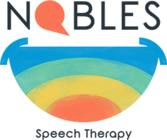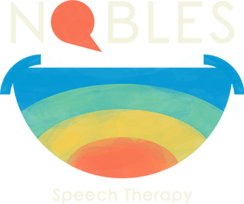Share this page:

Children with verbal dyspraxia face unique challenges coordinating the movements required for clear speech. While this might sometimes lead to periods of frustration and varied behaviors, such as crying, whining, temper tantrums, and, in some cases, kicking and hitting, with the right strategies and understanding, these moments can transform into opportunities for growth and connection.
Navigating this journey can present its own challenges, but the resilience and progress children can exhibit are equally compelling. This guide aims to empower families with insights and strategies to foster a supportive environment, amplifying children's strengths and ensuring their thriving development.
Discover Effective Strategies for Supporting Your Child with Verbal Dyspraxia
What is Verbal Dyspraxia?
Verbal dyspraxia makes it difficult for children to develop the movements used to form the sounds of letters and words. It is not related to damaged nerves or muscles but is a speech condition related to their ability to produce speech sounds and sequence them together to form words.
Children with verbal dyspraxia often have unintelligible speech, which can be connected to oro-motor dyspraxia, impacting their ability to co-ordinate their larynx, lips, tongue, and palate, or generalized dyspraxia, which affects their gross and fine body movements.
How is Verbal Dyspraxia Diagnosed?
If you suspect your child could have verbal dyspraxia, you can speak to your family doctor. They can consider their symptoms and decide whether referring them to a speech-language pathologist (SLP) makes sense. They are crucial in diagnosing developmental verbal dyspraxia, using a checklist of characteristics, and considering their presenting symptoms to diagnose the speech disorder.
However, the process can be complex, and today, it is not uncommon for therapists to hesitate to "label" a specific speech disorder. Their hesitation often stems from a desire to view individuals holistically, avoiding potential stigmas and ensuring flexible, tailored treatment rather than confining them to a specific diagnosis.
Instead of focusing solely on labels, they prioritize the characteristics to prescribe the most effective treatment.
How is Verbal Dyspraxia Treated?
Importance of Early Intervention
Addressing verbal dyspraxia effectively often hinges on the timeliness of intervention. Early identification and intervention can significantly improve a child's communication development trajectory. When initiated promptly, speech therapy can harness a child's natural neuroplasticity, making it easier for them to adapt and learn new speech patterns.
SLP's Approach to Treatment
Speech therapy for verbal dyspraxia is typically facilitated by a speech-language pathologist (SLP). They craft a specialized verbal dyspraxia treatment plan to bolster your child's communication skills. These treatments target syllables, words, and phrases, utilizing your child's cues to set a comfortable progression pace.
Consistency: Key to Successful Therapy
Consistency in therapy is equally crucial. Regular sessions and persistent practice both during sessions and at home play a pivotal role in ensuring the best possible outcomes. In more pronounced cases, children might be introduced to alternative forms of communication, such as electronic devices or sign language. Regardless of the severity, ongoing support at home is instrumental in amplifying the benefits of therapy.
Tips to Assist Your Child
Parenting a child with verbal dyspraxia can be stressful. However, developing supportive strategies for verbal dyspraxia therapy will help you cope with the challenges and build a stronger relationship with your child. You can use these tips to create a supportive environment that allows your child to experience more marked progression in their development through
verbal dyspraxia therapy:
Ready to Learn More About Verbal Dyspraxia Treatment in the Laurel MD area?
At Nobles Speech Therapy, we're dedicated to helping children with verbal dyspraxia find their voice and communicate with confidence. Based in Laurel MD, our specialized treatments are tailored to meet the unique needs of children with this condition. Dive deeper into our verbal dyspraxia specific treatment offerings and discover how we can make a difference. Learn more about our approach and solutions here.
Share this page:

About the Author
Myles Nobles is a pediatric speech and language pathologist in Laurel, MD. He uses a gentle approach and customizes treatment plans to help children from diverse backgrounds enhance their speech and language skills and reach their full potential, despite challenges such as autism. Myles' goal is to improve children's independence, self-confidence, and social well-being.



